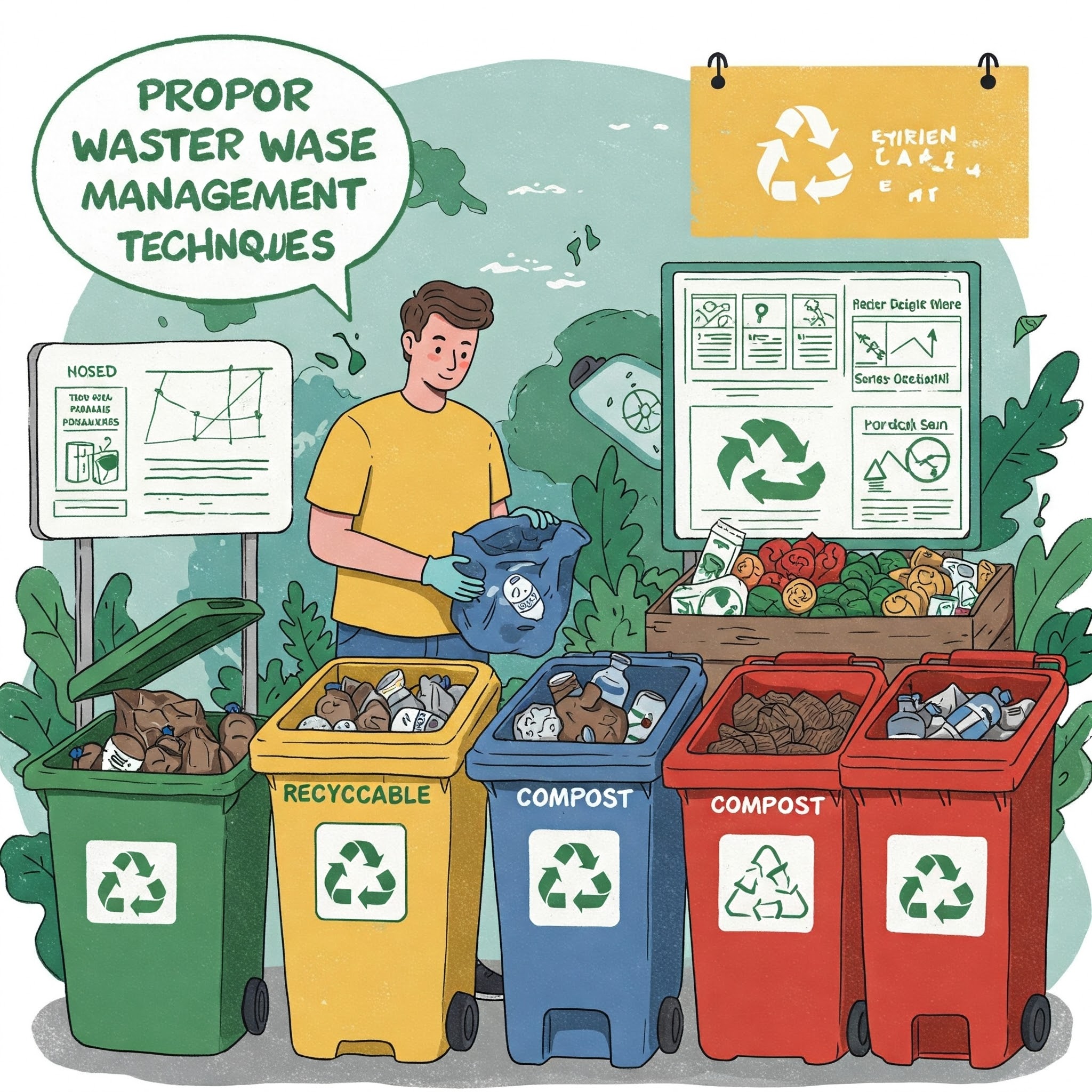Proper waste disposal is essential for protecting the environment, reducing pollution, and promoting sustainability. In Australia, strict waste management regulations are in place to ensure effective waste disposal, recycling, and landfill reduction. Understanding the best practices for proper waste disposal can help individuals, businesses, and communities contribute to a cleaner and healthier future.
Understanding Proper Waste Disposal
Proper waste disposal involves managing waste responsibly by separating, recycling, and disposing of materials in an environmentally friendly manner. It minimizes environmental impact and ensures compliance with Australian waste management regulations.

Importance of Proper Waste Disposal
- Reduces environmental pollution
- Conserves natural resources
- Supports recycling initiatives
- Prevents health hazards
- Reduces landfill waste
Overview of Australia’s Waste Management System
Australia has a well-structured waste management system that includes recycling programs, landfill regulations, and waste-to-energy initiatives. Key governing bodies include:
- Australian Government Department of Climate Change, Energy, the Environment, and Water
- State and Territory Environmental Protection Agencies (EPA)
- Local Councils and Municipalities
Waste Classification in Australia
Understanding the different waste categories is crucial for proper disposal:
- General Waste: Household and office waste
- Recyclable Waste: Paper, plastics, glass, and metals
- Green Waste: Garden clippings, leaves, and food scraps
- Hazardous Waste: Batteries, chemicals, e-waste
- Medical Waste: Needles, syringes, biohazard materials
Waste Disposal Regulations in Australia
Australian waste disposal is governed by strict regulations to ensure sustainability and environmental protection. Key legislation includes:
- National Waste Policy (2018)
- Product Stewardship Act (2011)
- Container Deposit Schemes (CDS)
- State-specific landfill regulations
Household Waste Disposal Best Practices
- Separate waste into bins: general, recycling, and organic
- Use council-provided bins correctly
- Avoid contamination of recyclables
- Participate in community recycling programs
Business Waste Disposal Best Practices
- Implement a waste reduction strategy
- Partner with certified waste management services
- Conduct regular waste audits
- Encourage employees to reduce and recycle
Recycling Programs in Australia
- Yellow Bin Recycling: For paper, plastics, and glass
- Container Deposit Schemes (CDS): Refunds for returned bottles and cans
- E-waste Recycling: Drop-off points for old electronics
- Battery Recycling Programs: Available at supermarkets and hardware stores
Proper Disposal of Hazardous Waste
- Take hazardous materials to designated collection centers
- Never dispose of chemicals down the drain
- Use proper containers for storage and disposal
- Follow local council guidelines
How to Dispose of E-Waste Responsibly
- Use dedicated e-waste collection points
- Donate working electronics to charities
- Participate in manufacturer take-back programs
- Avoid illegal dumping of e-waste
Green Waste Management and Composting
- Use green waste bins for organic material
- Start a home composting system
- Mulch garden waste for reuse
- Support council green waste collection programs
Landfills and Waste-to-Energy Initiatives in Australia
- Role of landfills in waste management
- Impact of landfills on the environment
- Waste-to-energy solutions (e.g., biogas, incineration)
- Future innovations in landfill alternatives
Reducing Plastic Waste: A National Priority
- Ban on single-use plastics in many states
- Encouraging the use of reusable bags and bottles
- Supporting businesses that offer plastic-free packaging
- Participating in clean-up initiatives
Community Involvement in Waste Reduction
- Join local clean-up programs
- Participate in waste education workshops
- Advocate for better waste management policies
- Support circular economy initiatives
The Role of Technology in Waste Management
- Smart bins with waste segregation sensors
- AI-powered recycling facilities
- Mobile apps for waste collection scheduling
- Blockchain for waste tracking and accountability
Common Mistakes in Waste Disposal and How to Avoid Them
- Mixing recyclables with general waste
- Disposing of hazardous waste incorrectly
- Ignoring council waste collection schedules
- Not properly rinsing recyclable items
Government Initiatives for Sustainable Waste Management
- Australia’s National Waste Policy Action Plan
- Funding for innovative recycling projects
- Support for businesses adopting sustainable waste practices
- Research and development in circular economy solutions
Waste Disposal Costs in Australia
- Landfill disposal costs: Varies by state, with landfill levies ranging from $70 to $150 per tonne
- Recycling costs: Some materials, like glass and paper, are subsidized, but others may incur fees
- Hazardous waste disposal costs: Collection and treatment fees depend on the type and volume of waste
- Business waste management fees: Private waste collection services charge based on frequency and waste type
Economic Benefits of Proper Waste Disposal
- Reduces long-term environmental cleanup costs
- Creates job opportunities in waste management and recycling
- Generates revenue through resource recovery (e.g., selling recyclable materials)
- Lowers healthcare costs by minimizing pollution-related diseases
Future of Waste Management in Australia
- Advancements in recycling technologies
- Government policies for zero waste cities
- Rise of circular economy models
- Increased corporate responsibility in waste reduction
Frequently Asked Questions (FAQs)
Q: How can I check my local waste collection schedule?
A: Visit your local council website or use waste collection apps.
Q: Can all plastics be recycled in Australia?
A: No, check local recycling guidelines to see which plastics are accepted.
Q: Where can I dispose of batteries safely?
A: Supermarkets, hardware stores, and council collection points accept batteries.
Q: What happens to my waste after collection?
A: It is sorted, processed, and either recycled, composted, converted to energy, or sent to landfill.
Conclusion and Call to Action
Proper waste disposal is a shared responsibility that requires commitment from individuals, businesses, and governments. By following best practices, staying informed about regulations, and supporting sustainability initiatives, Australians can contribute to a cleaner and greener future. Take action today by reducing waste, recycling properly, and educating others about responsible waste management.
Did you find this guide helpful? Share it with your community and encourage better waste disposal practices across Australia!